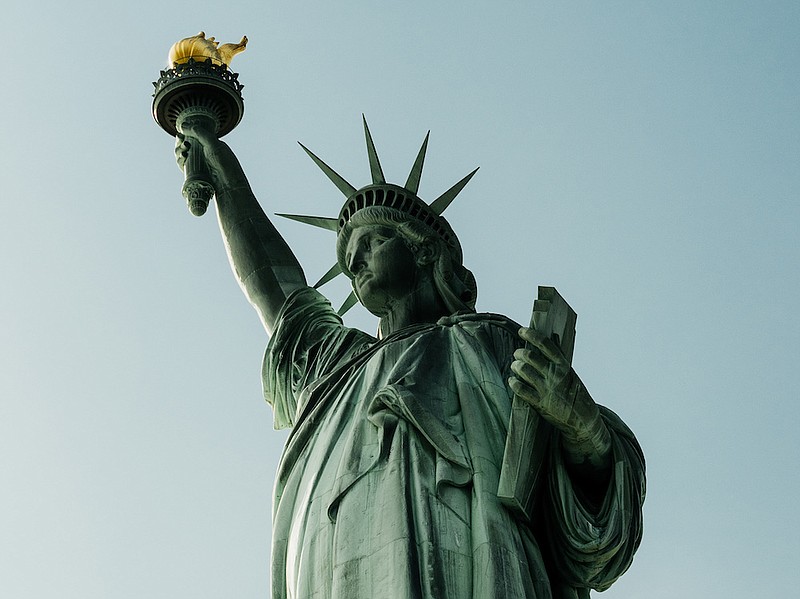Two hundred forty five years. Seven to 10 generations. That's how old - or young - this country of America is.
Frankly, that's really not a long time. But the scarier thing is that in our youth, and in this era, we're seemingly more fragile than ever.
At least, it certainly feels that way.
Go figure: In just the last 18 months alone, we've had a president twice impeached, a national Capitol under siege from insurrectionists, polls that show 1 in 4 Americans don't recognize the current president as the legitimate winner of the 2020 election, and an increasingly divided - by party, by race, by sex, by orientation, by you name it - citizenry and electorate.
"Fragile" may be overly kind.
On the other hand, we have a strong democracy.
We know who we are - even if our founders didn't exactly.
Our founders said some of us with darker complexions were deemed - in the not-at-all-smaller print of our early documents - less than a whole person for the purpose of tax apportionment.
"Representatives and direct Taxes shall be apportioned among the several States which may be included within this Union, according to their respective Numbers, which shall be determined by adding to the whole Number of free Persons, including those bound to Service for a Term of Years, and excluding Indians not taxed, three fifths of all other Persons."
The "other Persons" were slaves.
For all the vaulted controversy over our national history as inherently racist or not, can any other single fact loom larger than this? But put that aside for just a moment. And, no, we don't say that lightly.
Put aside the flaws of our beginnings, and consider what we've become over more than two centuries of struggle to become "a more perfect union," as the preamble of our U.S. Constitution begins:
"We the people of the United States, in order to form a more perfect union, establish justice, insure domestic tranquility, provide for the common defense, promote the general welfare, and secure the blessings of liberty to ourselves and our posterity, do ordain and establish this Constitution for the United States of America."
Clearly, we had unfinished business then and we still do now. It's been said that the progress of the American experiment is never complete, and our history bears this out:
Extending voting rights to people without property was once fiercely debated. The women's suffrage movement divided our nation for a time. The end of slavery and the long path to civil rights for all races was a multi-generational fight that on some levels continues to this day. The rights of sharecroppers, immigrants, the LGBT community, political dissiddents, religious groups - even women's health choices - continue to be sources of consternation.
Especially in light of the aspirational foundation of the Declaration of Independence, ratified on July 4, 1776:
"We hold these truths to be self-evident, that all men are created equal, that they are endowed by their Creator with certain unalienable Rights, that among these are Life, Liberty and the pursuit of Happiness."
We may know this in our hearts, but we're still working on making it a reality. Much of our nation's change - both across the country and in our Constitution - has come just in the past 100 years, in fits and starts and sometimes backward steps.
Democracy is messy. And democracy, in action, slowly climbs a ladder one rung at a time.
Our founders understood that and even planned for it, expecting us to keep working on this wonderful and free country we call America.
We're still a work in progress, America - sometimes fragile, sometimes strong - but struggling every day to become "a more perfect union."
